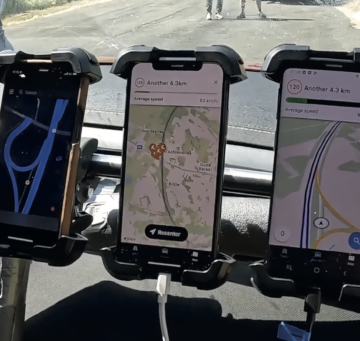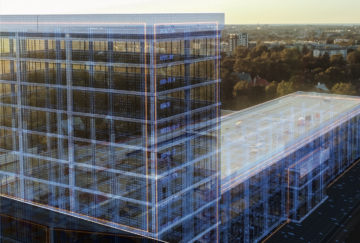MOBILIDATA

In Flanders, we strive to work on tomorrow’s mobility today. That includes the Mobilidata programme. With this programme, various levels of government, companies and researchers are jointly developing innovative, technological traffic solutions for road users, such as better route advice, tailored traffic notifications and intelligent traffic lights. New connected mobility and know-how do not stop at our national borders however, so international collaboration is needed to exchange knowledge and set up joint projects to implement it.
Objectives
In densely populated Flanders, urbanisation is constantly on the rise. However, our traffic infrastructure is not prepared for this. As a result, we all end up stuck in traffic more and more often. We aim to make our traffic safer and more efficient again, through knowledge and technology for generating, managing and sharing smart data.
► We can make traffic safer, smoother, more sustainable and comfortable by smartly organising the public data, businesses and road users and sharing real-time, relevant information with each other.
► This will lead to increased road safety, time savings, stress reduction, efficient communication and better air quality.
► In turn, strong mobility also ensures economic and social stability and stimulates growth.

Data as the basis for traffic solutions
Within the Mobilidata programme, 31 traffic solutions were developed in 5 categories: intelligent traffic lights, risk and hazard notifications, navigation and parking management, traffic rule notifications and policy support. Data sharing and collection are the basis for communication between the smart road infrastructure and the road user. These solutions will be available to Flemish road users from 2023 and 2024 on. Beyond the rollout of those identified traffic solutions, Mobilidata also focuses on further research into new traffic solutions and their market uptake, that have distinct societal value, such as accommodating cycling groups, supporting vulnerable (groups of) road users such as the blind and visually impaired and encouraging modal shift among commuters.
Collaborate on tomorrow’s mobility
Before we can safely implement tomorrow’s mobility, we need to provide a strong physical and digital base. In addition, international coordination and cooperation are essential, as future (eventually autonomous) mobility extends beyond our national borders. That is why we are happy to share best practices from the Mobilidata programme, but also look for interesting cross-border projects.
Latest insights & stories

BIM and digital twin for road safety and sustainability
The Department of Mobility and Public Works aims to make our mobility system more efficient by means of methodical digital solutions. They therefore are implementing BIM, a virtual way to build and collaborate on our infrastructure. Their goal? Setting up a ‘digital twin’: digital equivalents of our infrastructure and artworks. With these solutions they will be able to create analytics for optimal management via machine learning and smart data collection. To achieve that goal, collaboration is crucial.

Recticel launches the RE-engineered IP PIR insulation
Recticel is committed to high-performance insulation solutions that continuously reduce its carbon footprint, without compromising on the most stringent technical requirements.

Digital sovereignty guarantees data security in the public cloud
When companies consider migrating to the public cloud, they are sometimes held back by security risks and compliance and governance constraints. Thus the interest in digital sovereignty, Gwénaëlle Hervé, Public & Sovereign Cloud Lead at Proximus NXT, explains.